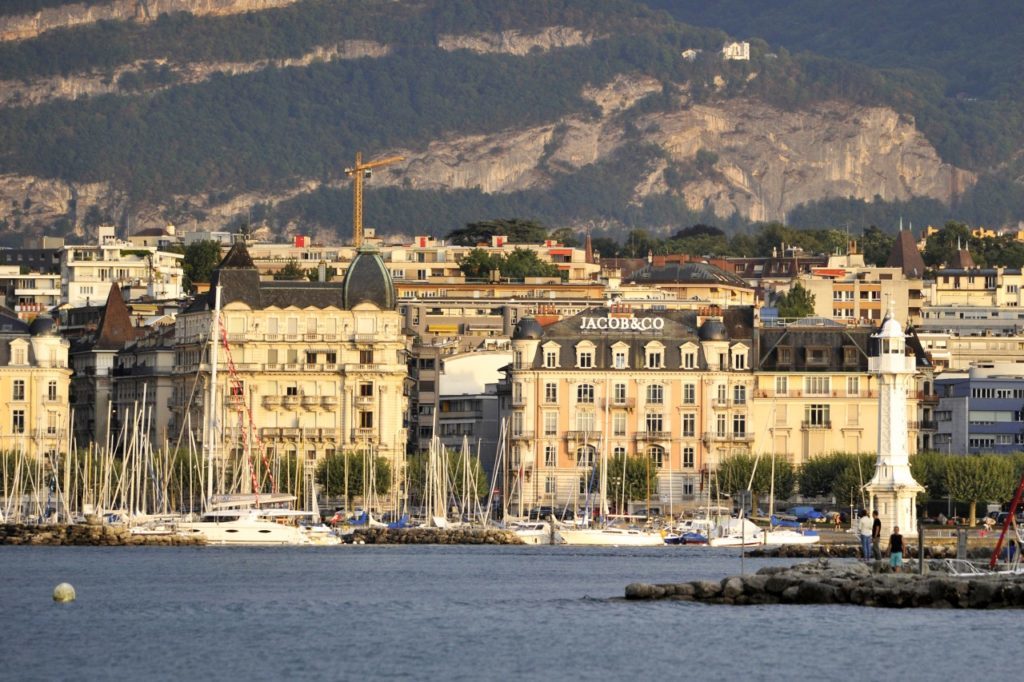
A briefcase seized from a Geneva apartment two years ago could be the key to an Italian bribery case against Royal Dutch Shell Plc and Eni SpA — if it makes it to Milan in time.
The bag held SIM cards, Nigerian passports, a laptop and a hard drive containing more than 40,000 documents, and belonged to Emeka Obi, according to a spokesman for the Geneva Prosecutor’s Office. Swiss prosecutors found it during a raid for an unrelated investigation and are trying to get it to their Italian colleagues, who are prosecuting Obi as an alleged middle man in a $1.1 billion kickback scheme involving the energy companies vying for a Nigerian oil license.
Obi’s lawyers persuaded a Geneva judge to put the contents of his briefcase under seal, citing his rights to privacy. Now a decision by Geneva’s Measures of Constraint Court on whether to lift that seal is expected as soon as this month.
While officials in Milan have moved forward with charges against the oil companies without the briefcase, the evidence could strengthen the graft case. The trial, which centers around events in 2011, begins on June 20. Milanese Prosecutor Fabio De Pasquale said he has “sent more reminders” to the Swiss saying he wants the briefcase, underscoring its importance.
International Cooperation
“The prospect of tens of thousands of documents and hard drives belonging to a middleman in the case is definitely the kind of evidence that needs scrutiny,” said Barnaby Pace, an investigator at Global Witness, a non-profit anti-corruption group that has helped drive the case forward. “This display of international cooperation in law enforcement is opening the door to seeing justice.”
The defendants in the Milan case include Eni Chief Executive Officer Claudio Descalzi as well as former executives at Shell. Milanese prosecutors allege the companies paid most of the $1.1 billion into an escrow account for the Nigerian government. About $800 million of that was later transferred to Malabu Oil & Gas Ltd., a Lagos-based company linked to former Nigerian oil minister Dan Etete, to be then distributed as payoffs, according to the prosecutors.
Eni has cooperated unconditionally with investigating authorities, the company said in an email. Eni’s board of directors has repeatedly expressed confidence that Descalzi and the company did nothing wrong.
The trial gives Eni and its executives the opportunity to demonstrate “the legality of their actions around the OPL 245 transaction,” the Rome-based company said in the email, referring to the specific offshore petroleum license.
Roberto Pisano, a lawyer for Obi, declined to comment, as did a spokeswoman for Shell.
There is no proof that there was corruption or “that Malabu corrupted Nigerian officials,” said Antonio Secci, Etete’s lawyer. “We are not the vendor of this OPL, we do transactions.”
Lescaudron Tie
A team of prosecutors found the bag when they were searching the home of a suspect, who can’t be identified under Swiss law. That person was allegedly involved in a separate scheme with former Credit Suisse Group AG banker Patrice Lescaudron, who was convicted of diverting millions of euros from client accounts earlier this year.
The Swiss planned to send its contents to their Italian counterparts, but were blocked by Obi’s seal order. A spokesman for Geneva prosecutors said they are waiting for a decision from the Constraint Measures Court so they can forward the documents to Milan.
If the Swiss tribunal decides to send the cache of evidence to the Italian authorities, that decision is subject to appeal. Obi, who is also facing Italian bribery charges, has opted to have a “fast-track” trial, which may conclude before the dispute over whether to share the briefcase’s contents is resolved. Other defendants undergoing a normal trial, including Shell and Eni, may be in court for as long as two years.
Obi is the sole shareholder of a company that acted as an intermediary between Eni and Etete, who then sued Etete in a London court, for failing to honor payments Obi claimed were contractually due to him.